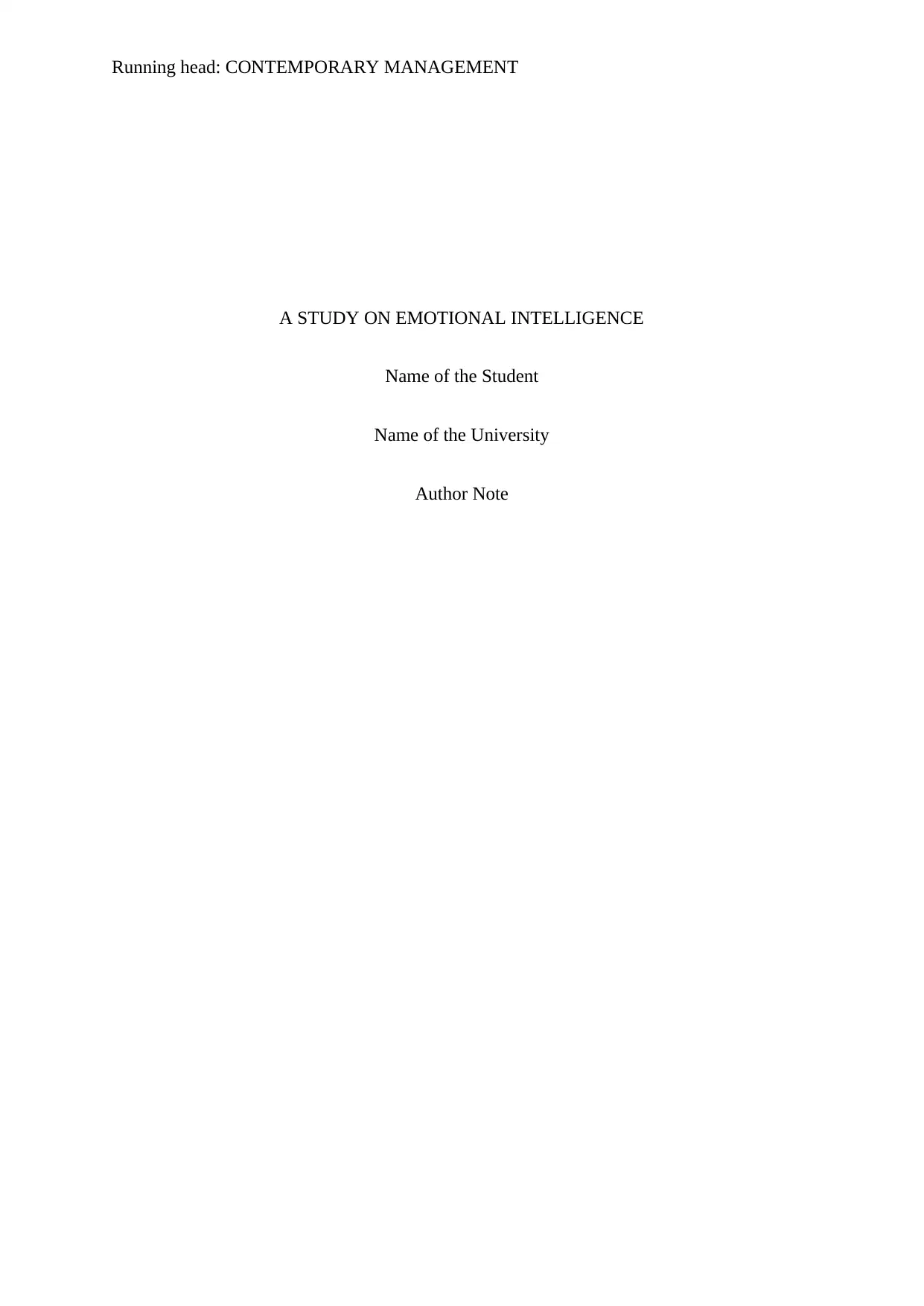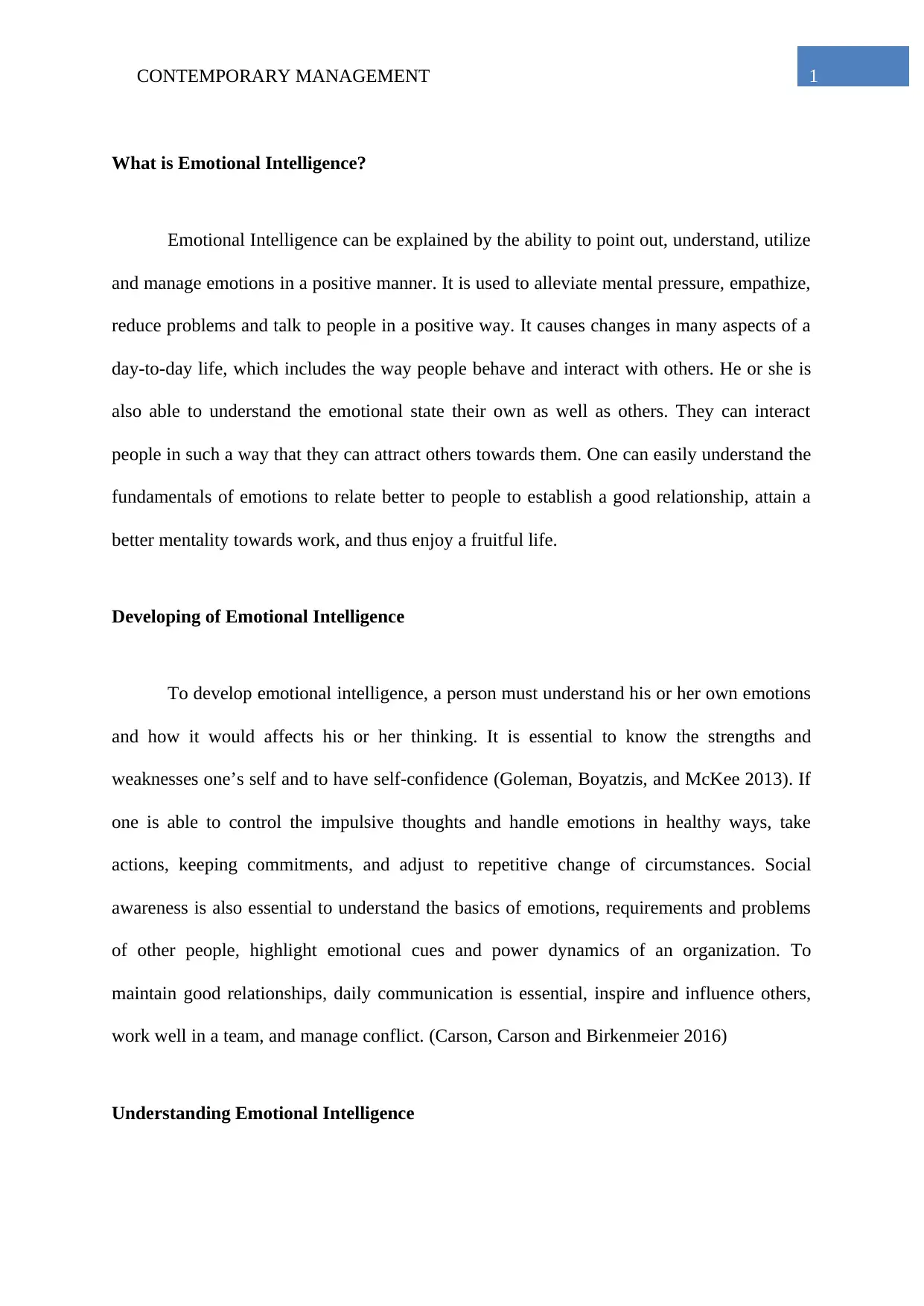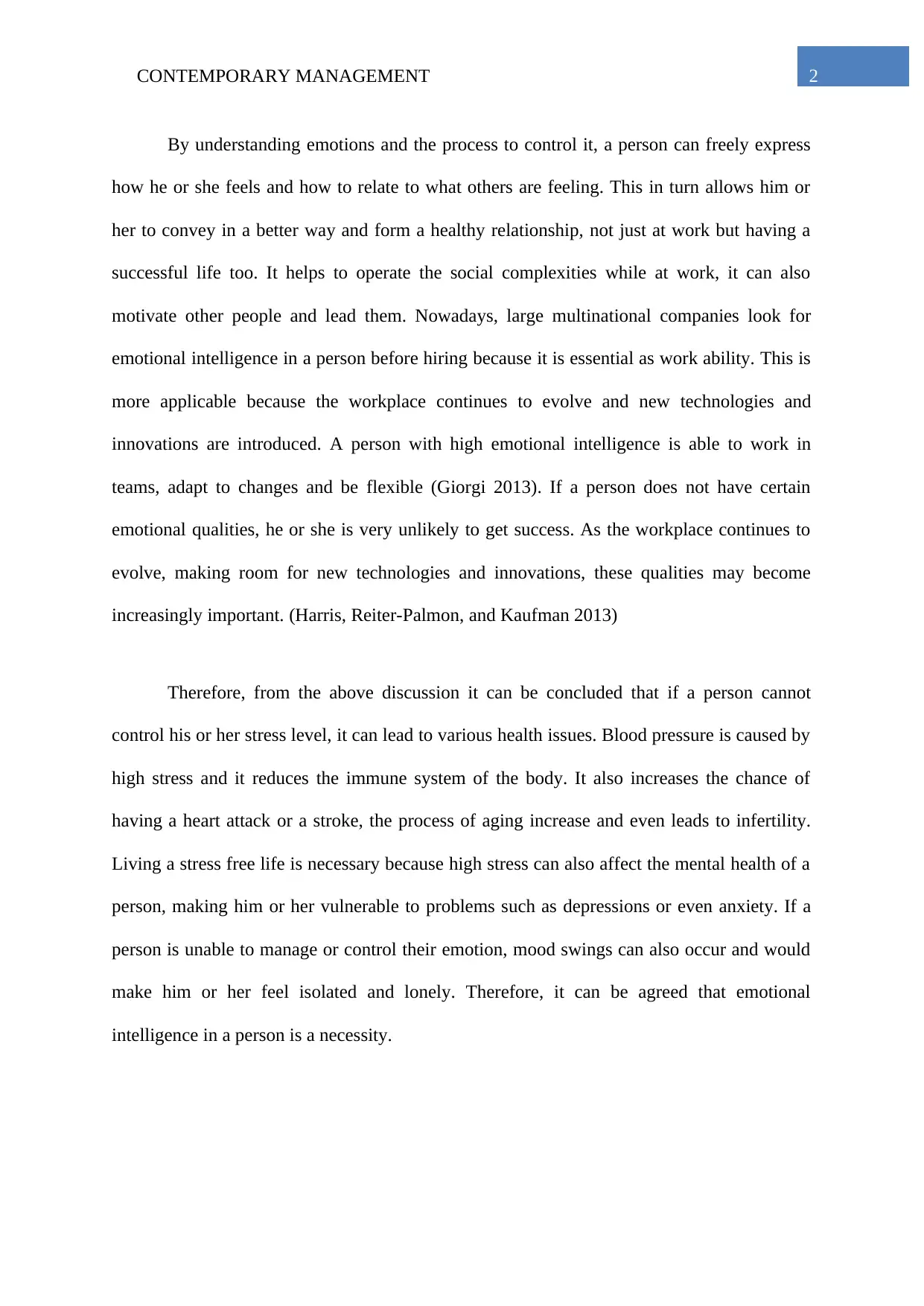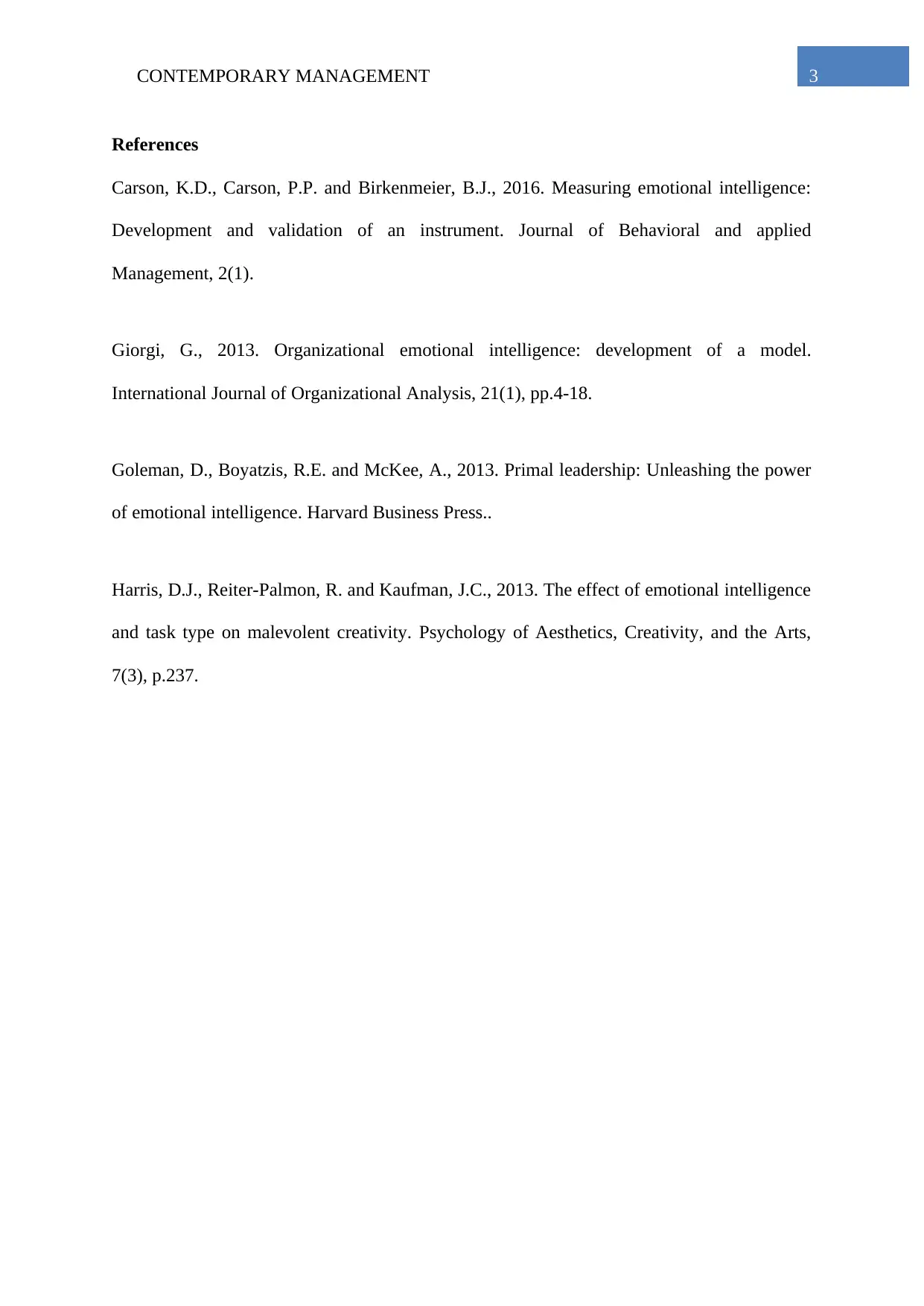A Study on Emotional Intelligence in Contemporary Management
VerifiedAdded on 2021/06/17
|4
|796
|23
Essay
AI Summary
This essay provides an in-depth analysis of emotional intelligence within the context of contemporary management. It begins by defining emotional intelligence and its significance in understanding, utilizing, and managing emotions effectively to enhance interpersonal interactions, reduce stress, and improve overall well-being. The essay then delves into the developmental aspects of emotional intelligence, emphasizing the importance of self-awareness, self-regulation, social awareness, and relationship management. It further highlights how emotional intelligence is crucial for fostering healthy relationships, navigating workplace complexities, motivating teams, and adapting to technological advancements. The essay underscores the importance of emotional intelligence for success in the modern workplace, referencing key research and concluding that the ability to manage stress and emotions is essential for both professional and personal success.
1 out of 4









![[object Object]](/_next/static/media/star-bottom.7253800d.svg)